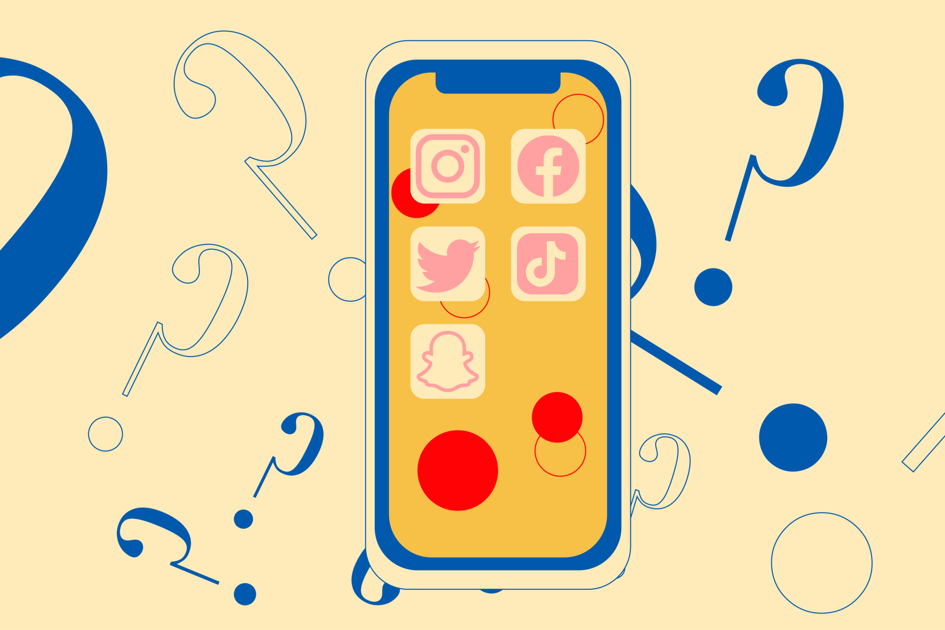
From Instagram and Facebook to Snapchat and Twitter, today’s modern age presents a world fixated and dependent on social media. Unfortunately, society’s reliance on these platforms has permeated the barriers of how we think and form opinions.
Given these technological advancements, an essential question remains: How does social media affect the formation of students’ opinions? I argue that the negative impacts outweigh the positive effects, compelling students to advocate for or against certain issues on inaccurate bases.
Before the advent of social media, Americans often received their information from traditional sources like newspapers, magazines, television news and radio shows. Whether the topic was political, social or economic, the flow of information was, for the most part, trusted, consistent and reliable.
In 2021, those statistics are changing rapidly. Roughly half of Americans prefer getting their news via digital platforms versus more traditional routes. This trend is strikingly more salient among Gen Z, who overwhelmingly rely on social media to keep up with current events.
There is no doubt that the existence and creation of social media has allowed for increased accessibility to information around the world. The timeliness and simplicity of having everything at our fingertips is undoubtedly alluring.
This comes at a cost: reliability. Social media allows us to crowdsource our news from different sources both professional and personal. As a result, trustworthiness and accuracy of information are both sacrificed, often leading us to skewed or downright false news.
“Social media can be a source to get some great tips,” said fifth-year accounting and management information systems double major Eunice Jeung. “But since the algorithm shows merely one side of the story that an individual is interested in, I definitely think it misguides opinions.”
As a student, I find myself witness to this pattern on a nearly daily basis. From inaccurate disputes regarding the 2020 presidential election to biased and one-sided information on international crises, our opinions are constantly being distorted and misguided by the falsities presented on social media.
The storm of coronavirus pandemic misinformation become the prime example demonstrating the impact of social media on information accuracy. While thousands of scientists were pouring their knowledge and efforts into diffusing precise scientific information, social media platforms had other plans.
A study done by researchers at the Technical University of Munich revealed that COVID-19 conspiracy theories were spreading unmoderated on platforms like Reddit, Twitter, Snapchat, Instagram and Facebook. Although mainstream information sources were reaching the American population, falsified facts on the pandemic were spreading more readily and reaching our society in much more accessible ways. As a result, stories “reinforcing conspiracy theories” tended to have a higher virality than neutral or debunking stories, according to the study.
How can our communities formulate genuine and educated opinions in a day and age filled with endless streams of information? Is America really strong enough to counteract the ever-growing forces of social media? Unfortunately, it appears not.
In reality, the power of technology is so strong that students often fail to recognize the influence it has over their opinions. These platforms have become so deeply ingrained in our lives that their effects are virtually inevitable, slowly feeding on our ability to think freely and critically.
Although official policies could induce some changes, that is simply not enough. If our society is to truly make a leap towards accuracy and reliability, we must be the ones to distance ourselves from social media and its harmful effects. Policy changes and new rules will only do so much if the individuals who make up America are dedicated to a willful dependency on these platforms that keeps them in the dark.
In the face of such an obstacle, only one solution remains: the gradual but definite breakup with social media. Will it be an easy feat for such a technologically entrenched generation? No. Will the transition from partiality to free thought be seamless? Probably not.
What is necessary, though, is a collective effort to turn away from the unreliable allure of social media and towards a society that values holistic, multi-perspective information.
Social media will not get us there. Social media cannot and will not be the vehicle used to form the precious opinions that will lead us to success. If we are to prosper, accuracy and reliability will be the two pillars that hold America’s foundation together.
"Opinion" - Google News
June 25, 2021 at 08:00PM
https://ift.tt/3xVHI7y
OPINION: Social media is distorting our opinions | Opinion - Red and Black
"Opinion" - Google News
https://ift.tt/2FkSo6m
Shoes Man Tutorial
Pos News Update
Meme Update
Korean Entertainment News
Japan News Update
No comments:
Post a Comment